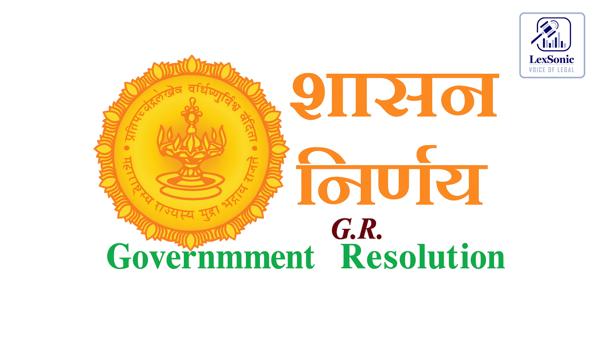Government Resolution on Inclusive Nomenclature: Maharashtra Reimagines Its Village Names.
Published 15 October 2025
Ethics & governance >> Business & Commercial Law
The Government of Maharashtra has introduced a structured process to eliminate caste-based names from villages, places, and roads throughout the state, particularly focusing on rural areas. This move is designed to foster social harmony, promote democratic values, and reinforce a sense of unity among citizens.
Objective and Rationale:
The initiative recognizes that caste-based names for public spaces do not reflect the progressive aspirations of Maharashtra. By replacing such names with those of eminent personalities and symbols of democratic ideals, the government aims to enhance social integration and diminish historical divides that may persist in community nomenclature. This policy underlines Maharashtra's commitment to equality and unity.

Departmental Roles and Responsibilities:
The policy distinguishes between urban and rural areas for administrative purposes. In urban territories, the Urban Development Department determines and implements the name change procedure, while the Rural Development Department oversees the same in rural locales. However, all administrative proceedings regarding actual name changes—particularly for villages—are to be spearheaded by the General Administration Department, ensuring uniformity and diligence in execution.
Stepwise Procedure for Name Changes:
The government notification prescribes a clear, step-by-step approach for changing caste-based names in rural communities:
- The process begins at the grassroots, where the matter must first be discussed and approved by the Gram Sabha (village council). A formal resolution is to be passed, articulating the village's desire and reasoning for the name change.
- Once the resolution is in place, the proposal is submitted to the Village Development Officer, who bears the responsibility of scrutinizing the documentation and intent.
- The vetted proposal is then forwarded to the jurisdiction's Chief Executive Officer, who reviews it for completeness and compliance.
The final step involves the District Officer, who evaluates the recommendations and grants the necessary approval for the name change.
Commitment to Transparency and Social Justice:
This order, issued under the authority of the Governor of Maharashtra, affirms the state’s commitment to transparent governance and social equity. The government has made the full circular accessible on its official website, promoting openness and public engagement in the renaming process.
Distribution of the Order:
Copies of the order have been widely circulated among key government officials and administrative divisions to facilitate smooth, coordinated implementation across Maharashtra. This ensures that all relevant authorities at the state, division, and district levels are aligned in their efforts to promote inclusivity through this historic renaming initiative.
This government directive represents a landmark step toward removing divisive nomenclature and honoring the legacy of great individuals living up to the ideals of democracy and social harmony, setting a precedent for progressive governance in India.
